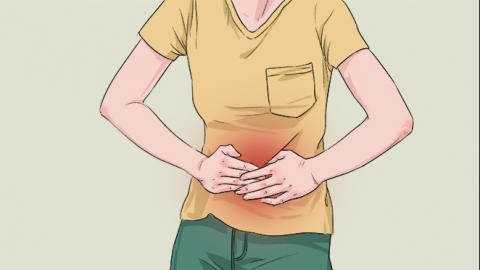What causes pain in the lower left abdomen?
Lower left abdominal pain may be caused by improper diet, abdominal cold exposure, strenuous exercise, enteritis, or ureteral stones, and can be improved according to different situations. It is recommended to visit a hospital promptly for treatment under a doctor's guidance.

1. Improper diet: Consuming large amounts of cold food in a short time can stimulate the gastrointestinal tract, causing intestinal spasms and resulting in lower left abdominal pain. It is recommended to stop consuming irritating foods, drink warm water in moderation, and apply a hot water bag to the abdomen, which can generally relieve the pain.
2. Abdominal cold exposure: Failure to cover properly during sleep may cause the abdomen, especially the lower left abdomen, to be affected by cold, leading to strong contractions of intestinal smooth muscles and pain. It is recommended to drink more hot water, wear additional clothing, and keep the abdomen warm.
3. Strenuous exercise: Engaging in vigorous activities immediately after meals, such as running or jumping rope, can reduce blood supply to the gastrointestinal tract and cause intestinal motility disorders, resulting in lower left abdominal pain. The pain usually subsides gradually after resting. It is recommended to wait 1-2 hours after eating before engaging in strenuous exercise, warm up adequately before exercising, and gradually increase the intensity of exercise.
4. Enteritis: Pathogens such as bacteria, viruses, and parasites infect the intestines, causing inflammation and damage to the intestinal mucosa, leading to lower left abdominal pain, accompanied by symptoms such as diarrhea, nausea, vomiting, and fever. Patients can take medications such as norfloxacin capsules, smectite powder, and Bifidobacterium quadruple viable tablets under a doctor's guidance to alleviate symptoms.
5. Ureteral stones: Minerals in urine form crystals that accumulate into stones within the ureter. Stone movement irritates the smooth muscle of the ureter, causing spasmodic pain that is intense and colicky in nature, radiating to the lower abdomen and perineum, accompanied by symptoms such as hematuria, frequent urination, and urgency. It is recommended to follow medical advice to use medications such as diclofenac sodium sustained-release tablets, tamsulosin hydrochloride sustained-release capsules, and lithiasis granules to relieve discomfort.
References:
[1] Wang Rong, Ji Rui. Study on the clinical characteristics, risk factors, and treatment interventions of fungal enteritis [J]. Chinese Journal of Mycology, 2024, 19(06): 591-595.
[2] Yang Junxian, Ai Qian, Shi Wenxiu, et al. Analysis of influencing factors for ureteral stricture after holmium laser lithotripsy via ureteroscopy for ureteral calculi [J]. Chinese Journal of Health Care Medicine, 2024, 26(06): 818-821.







